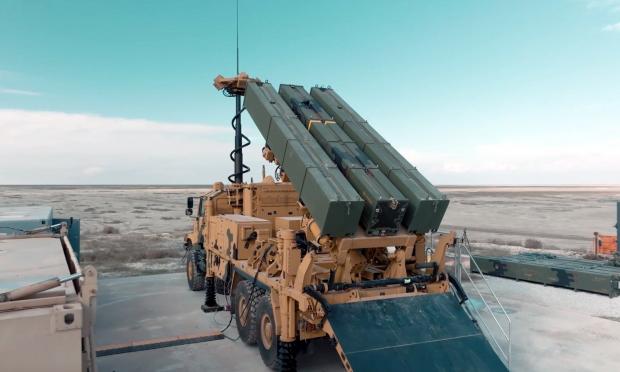According to information published by the Turkish newspaper Daily Sabah on February 10, 2025, Turkey, which joined the European Sky Shield Initiative (ESSI) in February 2024, is now an official participant in the project led by Germany, aiming to create a unified and effective missile defense system across Europe, and may offer its local air defense systems.
For example, the Turkish long-range missile defense system SIPER, developed by the companies Roketsan and Aselsan, is designed to provide advanced protection against aerial threats, including aircraft, cruise missiles, and ballistic missiles.
The European Sky Shield Initiative (ESSI) is a cooperative missile defense program led by Germany, aimed at enhancing the architecture of Europe’s air and missile defense by integrating various air defense systems from participating states.
Designed to address a wide range of aerial threats, including ballistic missiles, cruise missiles, and unmanned aerial vehicles, ESSI seeks to strengthen NATO’s overall deterrence and response capabilities.
The initiative promotes interoperability among European defense systems by integrating a mix of existing and new technologies, such as the IRIS-T SLM, Patriot, and Arrow-3 air defense systems.
By uniting many European nations under a single defense umbrella (here the question arises as to what Turkey's role is), ESSI not only strengthens Europe’s protection against aerial threats but also streamlines defense procurement, reducing costs and enhancing coordination among allied forces.
The risk for Greece and Cyprus
The insertion of Turkey into a purely European missile defense system overlooks the threats posed by Ankara regarding neo-Ottoman borders, the threats to Greece and Cyprus, and only satisfies the suspicious plans some have in Berlin with the Neo-Ottomans.
The attempt to exclude Turkey from the Italian defense industry market and the procurement of METEOR missiles from France is indeed in the right direction of Greek foreign policy, although it has been delayed for a long time.
The Turks entering a purely European missile defense system will infiltrate the innermost parts of any EU defense plan, leaving Greece and Cyprus exposed, which they threaten in every way.
We remind you that in October 2022, fifteen European countries, including Belgium, Bulgaria, the Czech Republic, Estonia, Finland, Germany, Hungary, Latvia, Lithuania, the Netherlands, Norway, Slovakia, Slovenia, Romania, and the United Kingdom, signed a declaration of participation in the European Sky Shield Initiative (ESSI).
The initiative, led by Germany, focuses on the joint procurement of air defense systems to enhance Europe’s missile defense capabilities.
All the founding countries are NATO members, with Finland officially joining the alliance in 2023, further strengthening the collective defense framework.
ESSI is closely aligned with NATO’s Integrated Air and Missile Defense System (NATINAMDS), enhancing the alliance’s ability to address aerial threats through a unified and multi-layered air defense network.
In February 2024, the German government announced the addition of Greece and Turkey to the initiative, marking a significant expansion of ESSI’s geographic coverage and operational capabilities.
What Turkey's entry into the program means for Europe and Germany
Europeans believe that “Turkey’s inclusion in ESSI is particularly noteworthy given its critical geographical position at the crossroads of Europe, Asia, and the Middle East.
As the southeastern wing of NATO, Turkey provides significant early warning and rapid response capabilities against missile threats emerging from unstable regions, including the Middle East and the Caucasus.
While the initiative mainly focuses on addressing Russian threats, Turkey’s regional coverage strengthens its strategic importance, enhancing NATO’s collective security position.
Additionally, Turkey’s participation could signify an upgrade in its relations with NATO, the European Union, and the United States, potentially easing tensions in defense cooperation.
Beyond its strategic position, Turkey will bring valuable technological contributions to ESSI.
In the last decade, the Turkish defense industry has made significant strides in the development of indigenous air defense systems, strengthening its ability to support Europe’s missile defense architecture.
Led by major defense companies such as Roketsan and Aselsan, Turkey has successfully developed and advanced a range of modern air defense systems designed to address evolving threats.
The HISAR-A and HISAR-O systems provide short- and medium-range air defense solutions capable of countering aerial threats, including aircraft, drones, and missiles,” concludes the article.
Germans, Britons, and French view Turkey as a valuable and necessary partner, overlooking Greece’s highly strategic position in the Eastern Mediterranean.
This dangerous perspective has its roots going back 150 years and is purely about the national interests of each country, and not Europe, for which they all claim to care.



